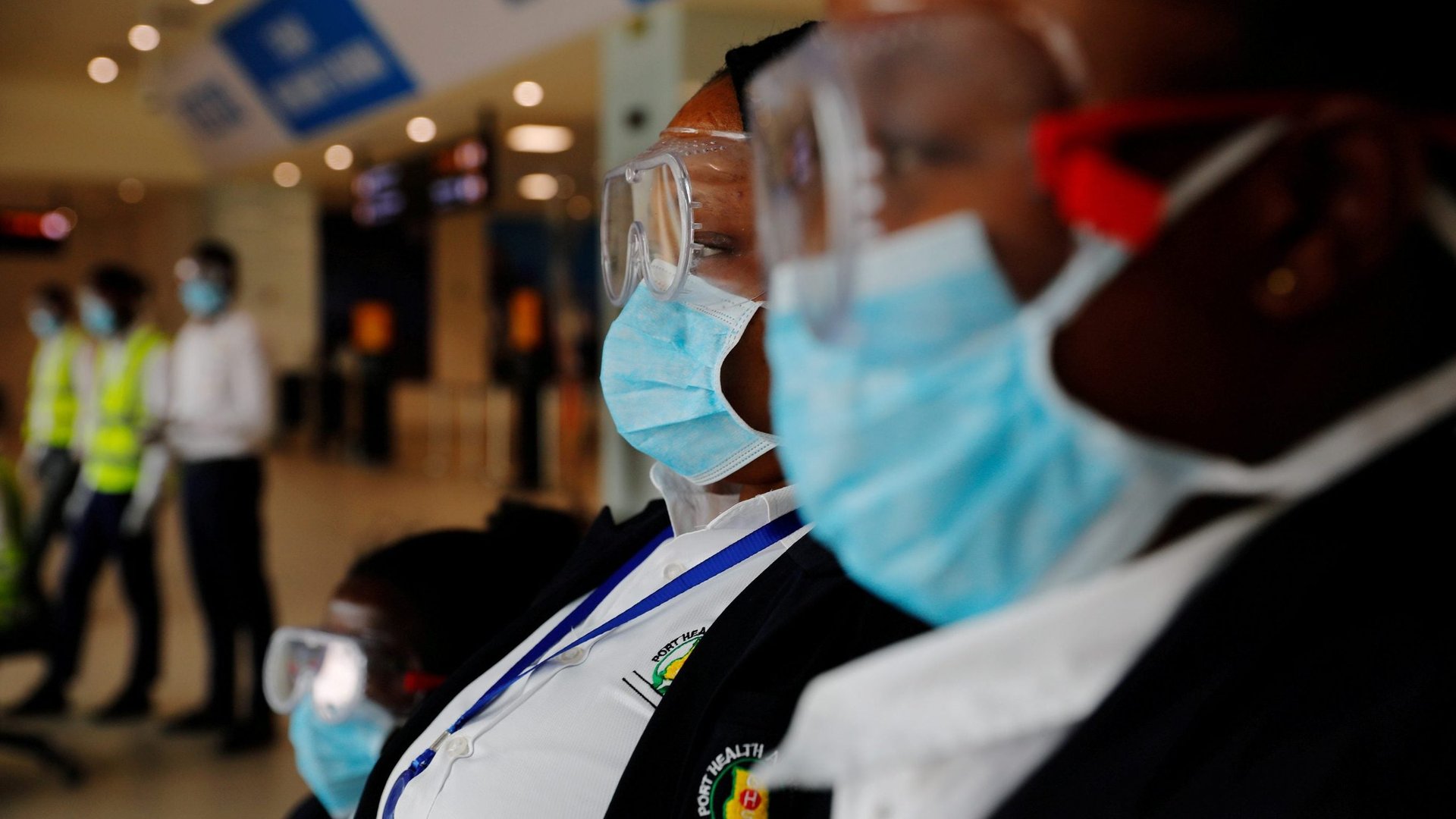Chinese middlemen are stockpiling facemasks from Kenya and Tanzania for export to China
In Nairobi’s Kilimani district the upper floor of a typically quiet medical supply shop is hectic with Chinese customers ordering face masks for export. Employees frantically prove the authenticity of facemasks in a three-part “burn, water and layer” test for clients as they film, sending video evidence in WeChat groups for eager buyers back in China.


In Nairobi’s Kilimani district the upper floor of a typically quiet medical supply shop is hectic with Chinese customers ordering face masks for export. Employees frantically prove the authenticity of facemasks in a three-part “burn, water and layer” test for clients as they film, sending video evidence in WeChat groups for eager buyers back in China.
Containing the spread of the Covid-19 coronavirus has been a difficult task for Chinese authorities. Over the course of three months, the deadly virus has gone from an unconfirmed rumor, to an all out outbreak, infecting around 74,000 people and claiming the lives of over 2,000 people on mainland China to date.
As the battle against coronavirus rages on, supplies of masks and no-contact thermometer guns have dwindled in China. The Chinese government says the country can only produce 20 million masks a day, half of what is needed in the current crisis. So, in an effort to meet ramped up demand, enterprising middlemen are now turning to African nations where a relatively limited supply of masks are made.
In Kenya, the price of a 50-pack box of masks has skyrocketed from around $2 before the outbreak, to nearly $10 at the end of last week, some have orders have since topped $15.
The local Nairobi business Quartz Africa visited this week has received an influx of orders is struggling to meet demand. On Friday, shop manager promised five days to fill an order promising that its factory had increased factory hours from 24 hour-day, five-day week, to to six days a week. By Saturday, the factory had run out of the cotton needed to produce the masks, but promised they were in the process of flying additional cotton supplies from Turkey. Merchants eager to get masks to China have also started to look to Tanzania meet their demand. Last week, the country had not yet been hit with as many masks demands and was able to sell masks at a fraction of what was being offered in Kenya. One Kenyan trader said the masks from Tanzania have been delivered via informal border backroads in order to avoid tariffs.
Kenya’s no-contact thermometer guns have also been met with increased demand. According to an exporter, though some of the guns are made in Kenya, a good number were imported from China only to be exported back again. The average price of a thermometer gun has jumped by 40% to as high as $35 from around $25 before the outbreak.
Demand for facemasks and other vital medical supplies have risen their price on the market globally.
“Demand is up to 100 times higher than normal and prices are up to 20 times higher,” said WHO director-general Tedros Adhanom Ghebreyesus at a news conference in Geneva this week. He has urged against hoarding medical resources during the crisis. “This situation has been exacerbated by widespread and inappropriate use of [personal protective equipment] outside patient care. As a result, there are now depleted stockpiles and backlogs of four to six months. Global stocks of masks and respirators are now insufficient to meet the needs of WHO and our partners.”
The price of facemasks has increased tenfold in Indonesia. Last week, the Commerce Ministry of Laos set a ceiling for the price of face masks. In China a box of 50 facemasks (imported from the Netherlands) are reportedly being sold for as much as $71.27.
Egypt, the only African country to have had a confirmed coronavirus case so far has also promised to supply facemasks to China which has ordered 200 million masks, but regulators have promised to prioritize local demand.
Fear of the virus spreading throughout Africa is still high. A number of countries have stopped flights from China and placed quarantines on visitors from affected regions, but Ethiopia has been staunch in its refusal to restrict China bound flights.
The African Union and the WHO have increased emergency preparedness efforts for coronavirus on the continent training “eighty participants from eighteen African countries” on “enhanced surveillance at points of entry…points of entry surveillance officers, national surveillance officers, airport authority officers, and representatives of airlines.”
But, if the outbreak does reach Africa, citizens are unsure if preparedness efforts alone will be enough.
At the Nairobi supplier where thermometer guns are being prepared for export back to China one worker notes: “What will happen if corona comes to Kenya? There’s nothing left for us…”
Sign up to the Quartz Africa Weekly Brief here for news and analysis on African business, tech and innovation in your inbox